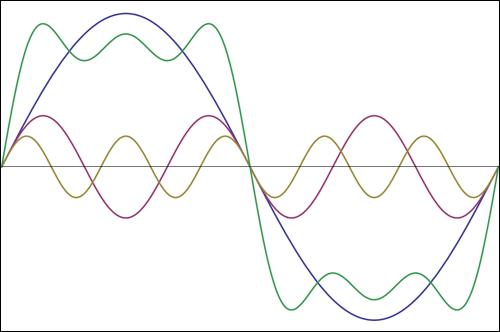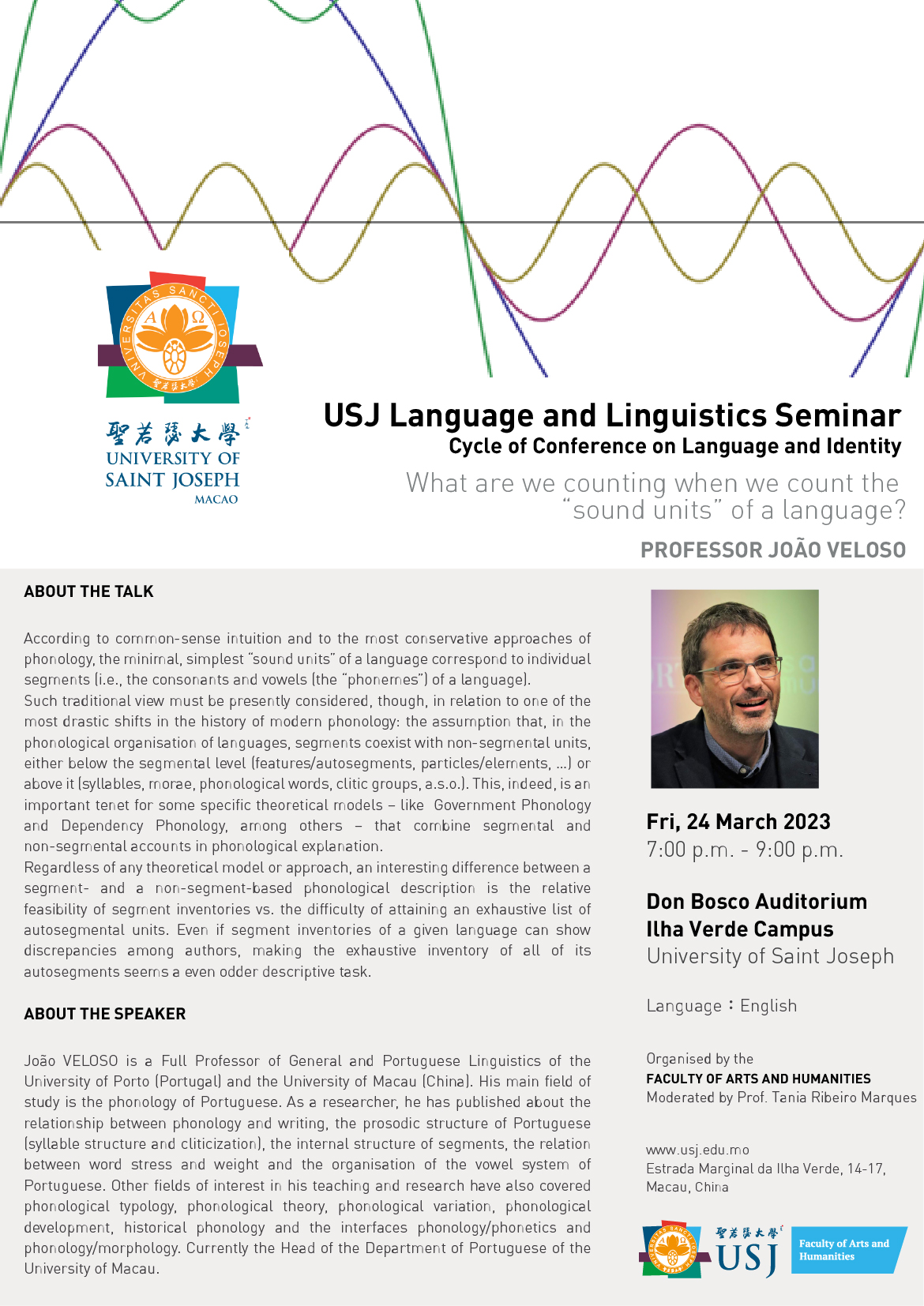Language and Linguistics Seminar | ‘What are we counting when we count the “sound units” of a language?’

Language and Linguistics Seminar | 'What are we counting when we count the “sound units” of a language?'
24
Mar
The Faculty of Arts and Humanities is hosting a Cycle of Conferences on Language and Identity. The next Language and Linguistics Seminar titled ‘What are we counting when we count the “sound units” of a language?’, will take place on Friday, March 24.
ABOUT SEMINAR:
Language maketh man! The language we speak or even the way we speak it tells the world who and what we are. From the ancient days, when the Greeks used to call barbarians those who did not speak Greek to more recent times when territory claims are made on the basis that the majority of the people there speak Russian and not Ukrainian, language has served to identify individuals as members of a group. Indeed, what we speak can tell where we are from, what we do, our sex and age, or even which part of town we live in.
Language as a major factor in our personal and collective identity shapes to a great extent our linguistic interactions and things such as nationality or sex, social background, or religion affect many of our language use choices.
Problems such as the use of which pronoun or why to adjust our speech will be some of the topics in this cycle of four conferences which will look at how what we speak determines what we are and vice-versa.
ABOUT THE CONFERENCE:
‘What are we counting when we count the “sound units” of a language?’
According to common-sense intuition and to the most conservative approaches of phonology, the minimal, simplest “sound units” of a language correspond to individual segments (i.e., the consonants and vowels (the “phonemes”) of a language).
Such traditional view must be presently considered, though, in relation to one of the most drastic shifts in the history of modern phonology: the assumption that, in the phonological organisation of languages, segments coexist with non-segmental units, either below the segmental level (features/autosegments, particles/elements, …) or above it (syllables, morae, phonological words, clitic groups, a.s.o.). This, indeed, is an important tenet for some specific theoretical models – like Government Phonology and Dependency Phonology, among others – that combine segmental and non-segmental accounts in phonological explanation.
Regardless of any theoretical model or approach, an interesting difference between a segment- and a non-segment-based phonological description is the relative feasibility of segment inventories vs. the difficulty of attaining an exhaustive list of autosegmental units. Even if segment inventories of a given language can show discrepancies among authors, making the exhaustive inventory of all of its autosegments seems a even odder descriptive task.
ABOUT THE SPEAKER:
João VELOSO is a Full Professor of General and Portuguese Linguistics of the University of Porto (Portugal) and the University of Macau (China). His main field of study is the phonology of Portuguese. As a researcher, he has published about the relationship between phonology and writing, the prosodic structure of Portuguese (syllable structure and cliticization), the internal structure of segments, the relation between word stress and weight and the organisation of the vowel system of Portuguese. Other fields of interest in his teaching and research have also covered phonological typology, phonological theory, phonological variation, phonological development, historical phonology and the interfaces phonology/phonetics and phonology/morphology. Currently the Head of the Department of Portuguese of the University of Macau (Faculty of Arts and Humanities, since 2022), he served as the Scientific Coordinator of the Centre of Linguistics of the University of Porto (2009-2022), President of the Portuguese Association of Linguistics (2012-2016), member of the National Delegation of Portugal at the International Institute of the Portuguese Language (2016-2022) and Deputy Vice-Chancellor of the University of Porto (2018-2022).
Details:
Date: Friday, 24 March 2023
Time: 7:00 p.m. – 9:00 p.m (Macau)
Location: Don Bosco Auditorium, USJ Ilha Verde Campus
Organised by: Faculty of Arts and Humanities (FAH/USJ)
Moderated by: Prof. Tânia Ribeiro Marques
*Free event, open to the general public
*Sessions will be conducted in English


 Add to my Google Calendar
Add to my Google Calendar







